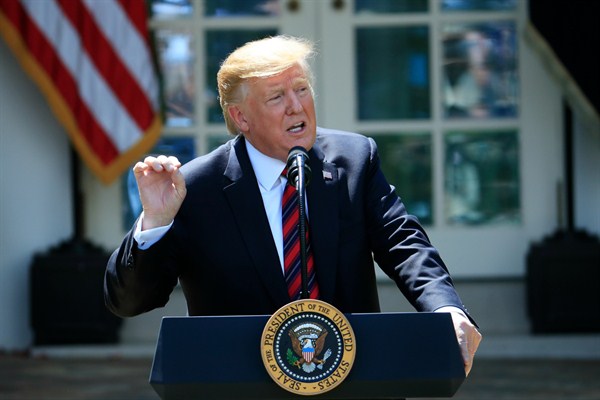As a late entrant to the game of high-stakes statecraft, having expanded in size and influence in relative isolation, the United States has always had a peculiar approach to the world. It has been characterized most of all by a pervasive tendency to assume that other nations and other peoples see politics and security the same way that Americans do. But not surprisingly, that leads to a lot of misperceptions. Today, those misperceptions, propelled by the Trump administration’s eccentric approach to statecraft, are becoming increasingly dangerous as America’s margin for error in its foreign policy decreases. If left unchecked, these chronic misunderstandings may push the United States into an unintended crisis or conflict.
The roots of America’s tendency to misperceive the world lie deep in historical experience. Many Americans see the primary purpose of government as promoting individual liberty and economic opportunity. They assume that individual and national security are the natural condition, even though the state must sometimes act against those who threaten it, whether criminals or foreign enemies. Americans by and large believe that the best way to promote individual liberty and economic opportunity is by a limited government that is responsive to the will of the public, the rule by law, free enterprise and a free press scrutinizing elected and appointed government officials. The global order, in turn, should operate on the same broad principles, according to this prevailing view—problems are best managed peacefully but can be addressed by sanctioned force, if necessary.
While the United States helped create the current international order after World War II and continues to play a major role in sustaining it, Americans generally believe that it serves the interest of all nations and all peoples. Those who oppose this status quo are “rogues,” “revisionist powers” or “nefarious actors” who must be managed, contained or defeated.

